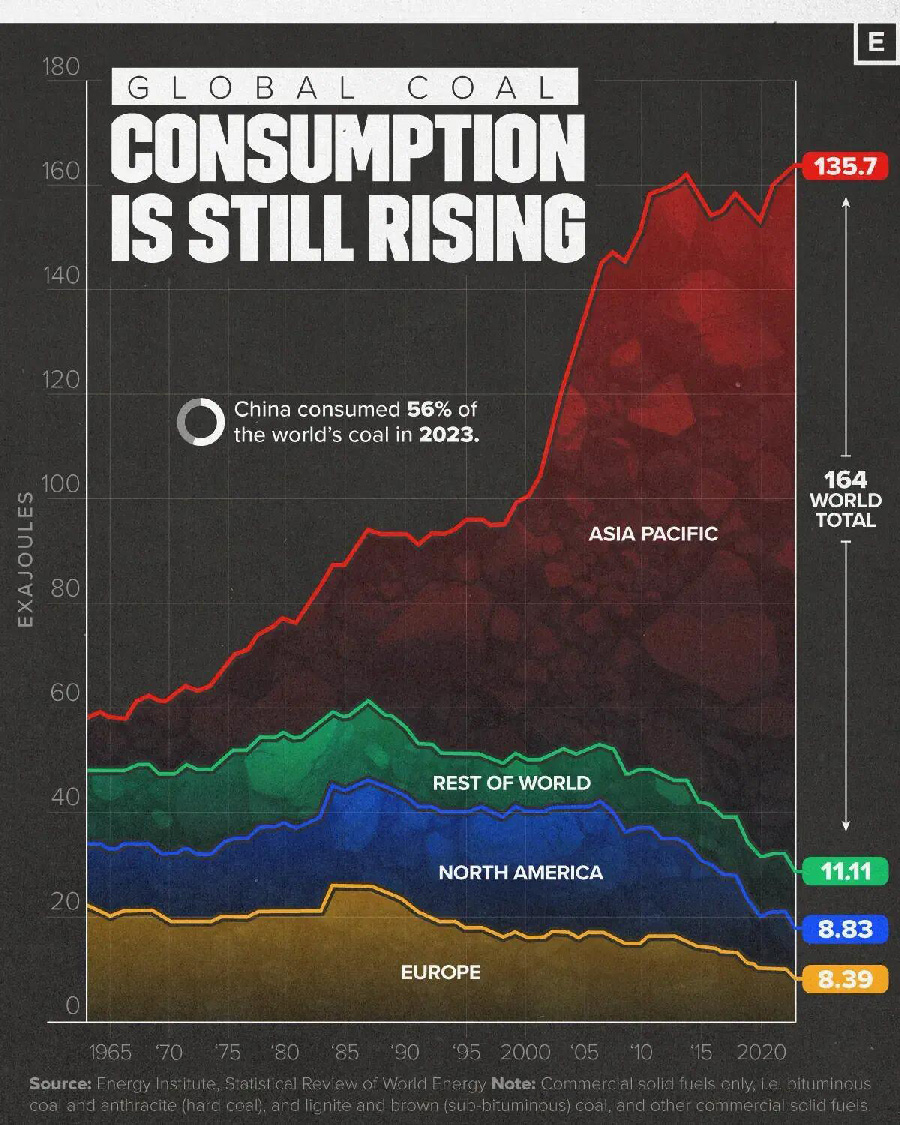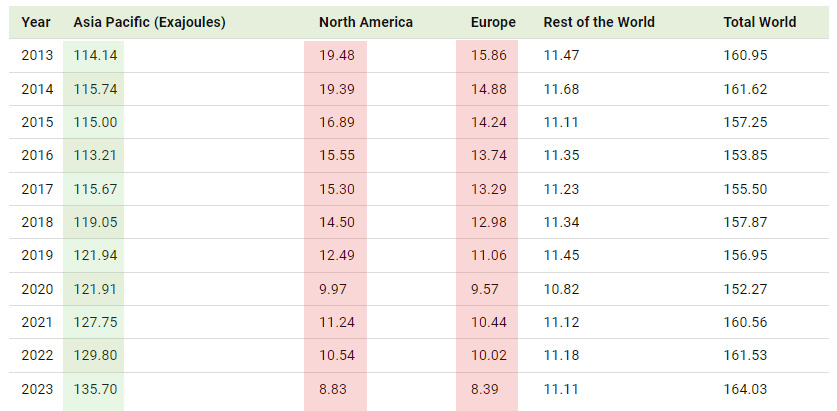Coal's Resurgence Challenges Global Energy Transition
Tyler Durden
 Despite efforts to decarbonize the economy, global coal consumption surpassed 164 exajoules for the first time in 2023. The fossil fuel still accounts for 26% of the world’s total energy consumption. Despite efforts to decarbonize the economy, global coal consumption surpassed 164 exajoules for the first time in 2023. The fossil fuel still accounts for 26% of the world’s total energy consumption.
In this graphic, Visual Capitalist's Bruno Venditti shows global coal consumption by region from 1965 to 2023, based on data from the Energy Institute.

China Leads in Coal Consumption
China is by far the largest consumer of coal, accounting for 56% of the global total, with 91.94 exajoules in 2023.
It is followed by India, with 21.98 exajoules, and the U.S., with 8.20 exajoules. In 2023, India exceeded the combined consumption of Europe and North America for the first time.
Regionally, North America, Europe, and even the Rest of World have seen a decline in coal consumption since the 1990s. The Asia-Pacific region, however, has made up for this demand and more, with consumption soaring since about the year 2000.

Coal Production on the Rise
In order to meet consumption demand, global coal production also reached its highest-ever level in 2023.
Over 8.7 billion tonnes of coal were mined, equal to about 179 exajoules worth, with the Asia-Pacific region accounting for nearly 80% of global output. This activity was concentrated in Australia, China, India, and Indonesia.
China alone was responsible for just over half of total global production.
If you want to learn more about fossil fuel consumption, check out this graphic showing the top 12 countries by fossil fuel consumption in 2023.
By Zerohedge.com
 our mission: our mission:
to widen the scope of financial, economic and political information available to the professional investing public.
to skeptically examine and, where necessary, attack the flaccid institution that financial journalism has become.
to liberate oppressed knowledge.
to provide analysis uninhibited by political constraint.
to facilitate information's unending quest for freedom.
our method: pseudonymous speech...
Anonymity is a shield from the tyranny of the majority. it thus exemplifies the purpose behind the bill of rights, and of the first amendment in particular: to protect unpopular individuals from retaliation-- and their ideas from suppression-- at the hand of an intolerant society.
...responsibly used.
The right to remain anonymous may be abused when it shields fraudulent conduct. but political speech by its nature will sometimes have unpalatable consequences, and, in general, our society accords greater weight to the value of free speech than to the dangers of its misuse.
Though often maligned (typically by those frustrated by an inability to engage in ad hominem attacks) anonymous speech has a long and storied history in the united states. used by the likes of mark twain (aka samuel langhorne clemens) to criticize common ignorance, and perhaps most famously by alexander hamilton, james madison and john jay (aka publius) to write the federalist papers, we think ourselves in good company in using one or another nom de plume. particularly in light of an emerging trend against vocalizing public dissent in the united states, we believe in the critical importance of anonymity and its role in dissident speech. like the economist magazine, we also believe that keeping authorship anonymous moves the focus of discussion to the content of speech and away from the speaker- as it should be. we believe not only that you should be comfortable with anonymous speech in such an environment, but that you should be suspicious of any speech that isn't.
www.zerohedge.com
| 

